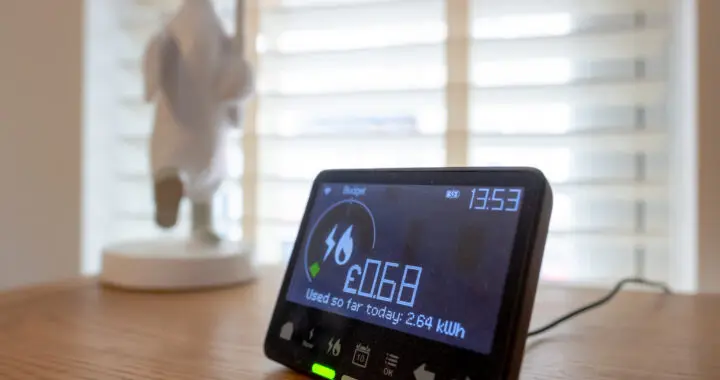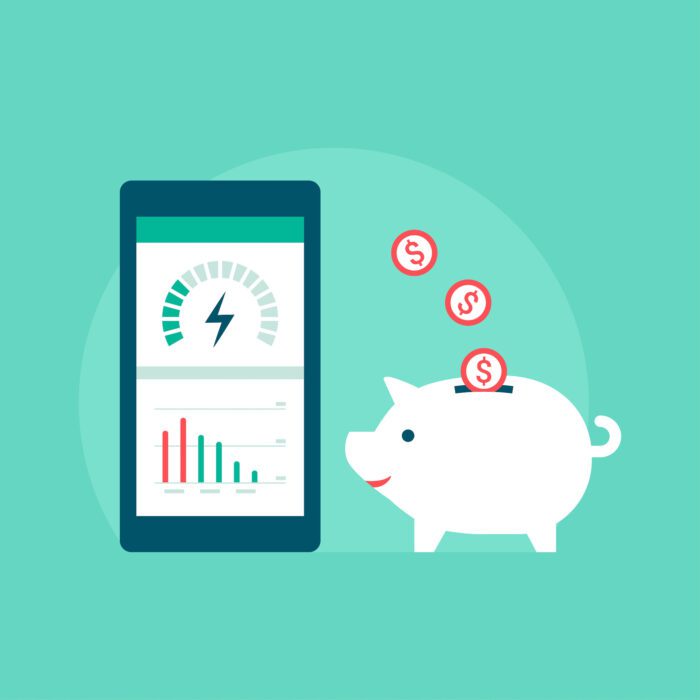The push for all UK homes to install an energy smart meter continues unabaded, the latest government statistics show that smart or advanced meters make up a 52% share of all meters with 25.6 million working in ‘smart mode’. Energy companies and the goverment all tout the benefits of these meters but surely there must be some cons as well? First things first, what exactly is a smart meter?
What is a smart meter?
A smart meter is an electronic device which is connected to an in-home display, much like a small tablet screen. It automatically tracks your gas and electricity usage in real time. The most appealing benefit to having one in your home is that it sends precise usage to your energy supplier which means you are billed for exactly what you use, rather than ‘average’ use which most suppliers will calculate. Of course you can always provide your energy supplier with a reading from a traditional meter. The other benefit is that it the information is in real time so you can switch appliances, lights etc on and off to see their energy consumption.
Disadvantages of smart meters
Having a smart meter sounds like a no-brainer so far, right? Before you rush out to get one consider the following.
1. Smart meters use mobile networks
For clarity, there are first generation smart meters (SMETS1) which uses a mobile network signal to send data, these do not have a WiFi or internet connection you can setup. If your home is in a patchy mobile area, the information may be slow, delayed or simply not function at all. This can lead to readings not being sent and even cause confusion over bills for both you and your energy supplier. There is a second generation being setup by the Data Communications Company (DCC) to resolve this issue. The DCC state that smart meter mobile communications is currently available to over 99% of UK households.
2. They make switching energy suppliers difficult
This applies to the first generation smart meters (SMETS1), however if you have one of these and choose to switch energy suppliers you may find your smart meter needs to be updated to a second generation as the SMETS1 meter may not be compatible with your new supplier. It is recommended to wait to be offered an updated second genration meter and decline any offer from your supplier to install a first generation SMETS1 meter. This will allow you to access a wider selection of energy deals whilst keeping up to date with the smart meter technology.
3. Smart meters are a potential cyber security risk
As with any network device there is always a risk of security, keep in mind that the information sent about your energy consumption they do not send any personal details such as name address, bank/credit information however there is a risk of this information being altered in transit. Keep in mind that smart meters were designed in conjunction with the UK’s top cyber security experts.
4. They do not automatically save you money
Energy companies have used very aggressive sales language which almost make it sound like simply installing a smart meter will save you money, this is not the case. It is arguable that installing a smart meter is for the benefit of the energy company, not you as the consumer. These meters make it very easy for their billing, less engineers are required for manual readings and for their monitoring the energy demands at a micro and macro level. You will need to monitor the usage, as appliances are in use, such as your big screen TV, microwave, kettle etc to determine where you may be able to reduce your usage.
5. Excessive monitoring
Do you have a fitbit or smart watch? Ever get obsessive about how many steps you have done today? Imagine a smart meter staring at you as you hit your game console, cook a meal or turn up the thermostat? Watching the pennies rise constantly can easily cause anxiety for some people. Consumers may find that friction is caused within the family as the bill payer demands you use stop charging your phone, watch less TV or put a jumper on rather than turning up the thermostat 1 degree.
There are Pros as well
The push for every consumer to install a smart meter is very strong, especially with the energy crisis at the moment, sure there are several good reasons for having one too.
Encourages action for conservative energy consumption
We do need to save the planet and more people who change thier habits can reduce the energy demands globally, using less fossil fuels is a good thing. For example, just being aware to turn off the lights when you leave a room can make a big difference over a year. Perhaps turning down your fridge by a few degrees won’t let your food spoil, but can save alot on the long run.
No more readings on meters
A smart meter can take an energy reading from your meter and forward the data to you energy supplier. It means no more fumbling through a cabinet with a torch as you attempt to read the numbers.
It also means that your energy provider won’t have to pay someone else to go out and examine your meter. What they save on costs can be passed onto you, the consumer.


